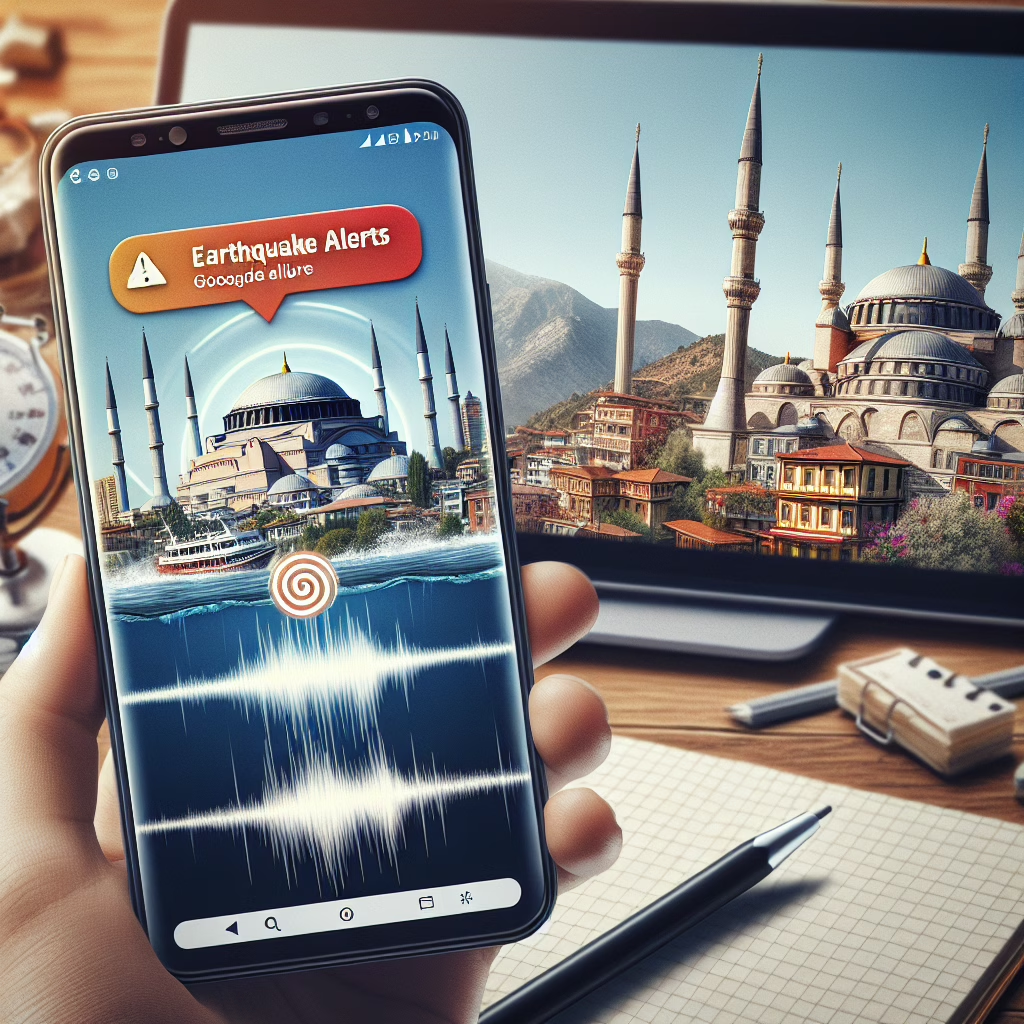In a world where we can track our pizzas in real-time, it’s only fitting that we also have a system to alert us about earthquakes. Enter Google Android earthquake alerts—a high-tech feature designed to keep us informed during seismic events. However, as demonstrated during the 2023 quake in Turkey, things don’t always go according to plan. Buckle up as we explore the rollercoaster of tech triumphs and hiccups in this realm!
What Happened During the Turkey Earthquake?
On that fateful day in July 2023, Turkey experienced an earthquake that reverberated through not just the ground but also through our trusty smartphones. Google’s Android earthquake alerts aimed to provide timely notifications, helping residents prepare for potential tremors. Unfortunately, the system faced a partial failure. It seems even technology can have an off day—much like when you forget your umbrella on a rainy day!
The Science Behind the Alerts
Google’s earthquake detection system utilizes a network of sensors and algorithms to identify seismic activity. When an earthquake occurs, it analyzes data from these sensors and sends out alerts to nearby users through Android devices. This system is part of Google’s effort to leverage technology for safety—a noble cause indeed! But as we saw in Turkey, sometimes those algorithms can throw a little tantrum.
Imagine you’re sipping your coffee, scrolling through your phone when suddenly—BAM! An alert pops up. Ideally, this alert gives you a few precious seconds to take cover or brace yourself. But during the Turkey quake, many users reported receiving alerts that were either delayed or not sent at all. Talk about a buzzkill!
What Went Wrong?
The partial failure of Google’s earthquake alerts during this critical time led to confusion and frustration among users relying on their devices for timely information. Reports indicated that while some users received notifications, others were left in the dark—or should we say, “in the shake?”
This incident highlights an essential truth: even state-of-the-art technology isn’t foolproof. As much as we want our devices to predict the next big shake-up (pun intended), they are still learning how to read the seismic tea leaves accurately.
The Importance of Real-Time Alerts
Real-time alerts can be lifesavers during natural disasters. They provide crucial information and can make all the difference between ducking under your desk or simply continuing your day unaware of impending danger. In regions prone to seismic activity, having reliable systems in place is paramount.
While Google’s alerts are designed to improve safety, this hiccup serves as a reminder of the importance of redundancy in emergency systems. Relying solely on one source for crucial information can lead to unforeseen consequences—like showing up at a pizza party without pizza!
Lessons Learned for Future Improvements
Every stumble offers an opportunity for growth! Post-2023 Turkey quake, Google has committed to enhancing its earthquake alert system. Developers are likely hard at work refining algorithms and improving sensor networks so that when the ground shakes again—because it will—the alerts will be there on time.
It’s also worth noting that community education plays a vital role in disaster preparedness. Users should understand how these systems work and what to do when an alert is received—or not received! Perhaps some light reading on emergency protocols could save a few nerves when the next tremor strikes.
Conclusion: Embracing Technology with Caution
In conclusion, while Google Android earthquake alerts aim to enhance safety during seismic events, their partial failure during the Turkey quake reminds us of the importance of backup plans and staying informed. Technology is our ally, but it’s wise not to put all our eggs—or smartphones—in one basket.
So what do you think? Are you ready to trust your smartphone during an earthquake? Or would you rather stick with good old-fashioned intuition? Share your thoughts below!
A big thank you to 9to5Google for shedding light on this important topic!
Future of Google Android Earthquake Alerts
As technology continues to evolve, it’s essential for Google to stay ahead in enhancing its earthquake alert systems. With machine learning and improved sensor technologies, future versions of the Android earthquake alerts could potentially offer more accurate real-time notifications. This means alerts could be sent instantly, minimizing the risk for users during seismic events.
Exploring Other Earthquake Notifications
In addition to Google, there are various other platforms and apps catering to earthquake alerts in different regions. Some local governments have implemented their own alert systems, which can sometimes provide more localized updates than global solutions.
How to Prepare for an Earthquake
- Have an emergency kit ready, stocked with essentials such as water, food, and first-aid supplies.
- Develop a family emergency plan detailing where to meet and how to communicate after an earthquake.
- Stay informed with multiple sources of information, not solely relying on your smartphone or apps like Google.
This proactive approach can make all the difference when the ground starts to shake. So always stay informed, and don’t hesitate to share any crucial tips that might help others when disaster strikes!

